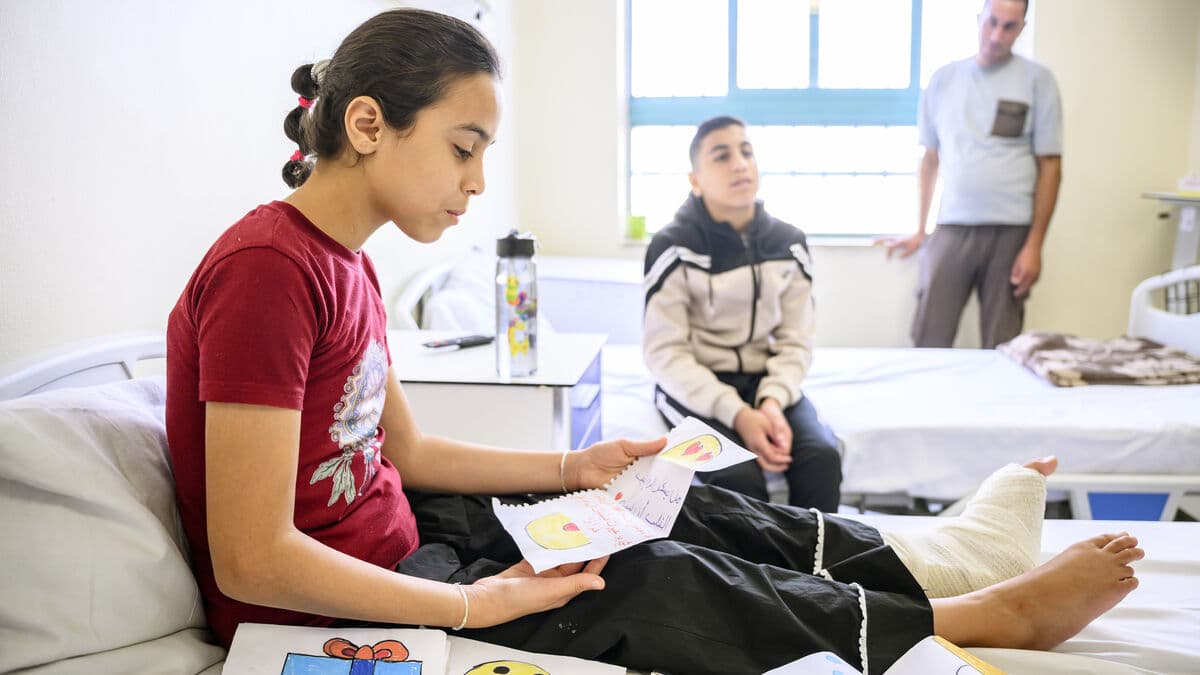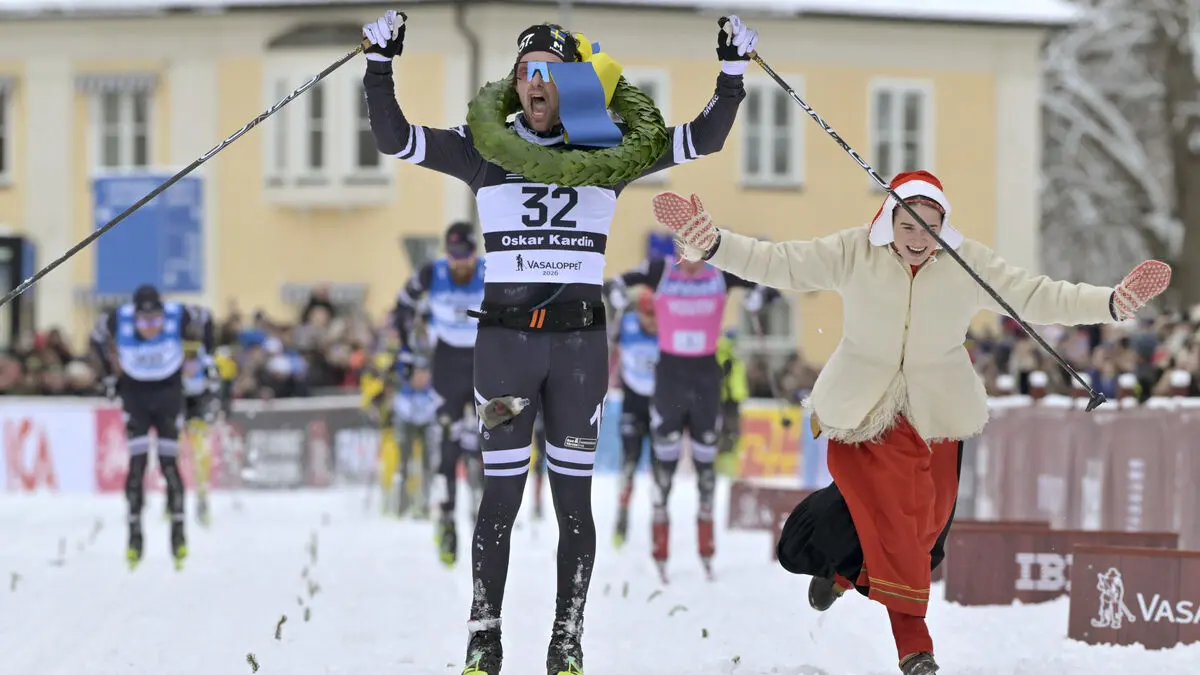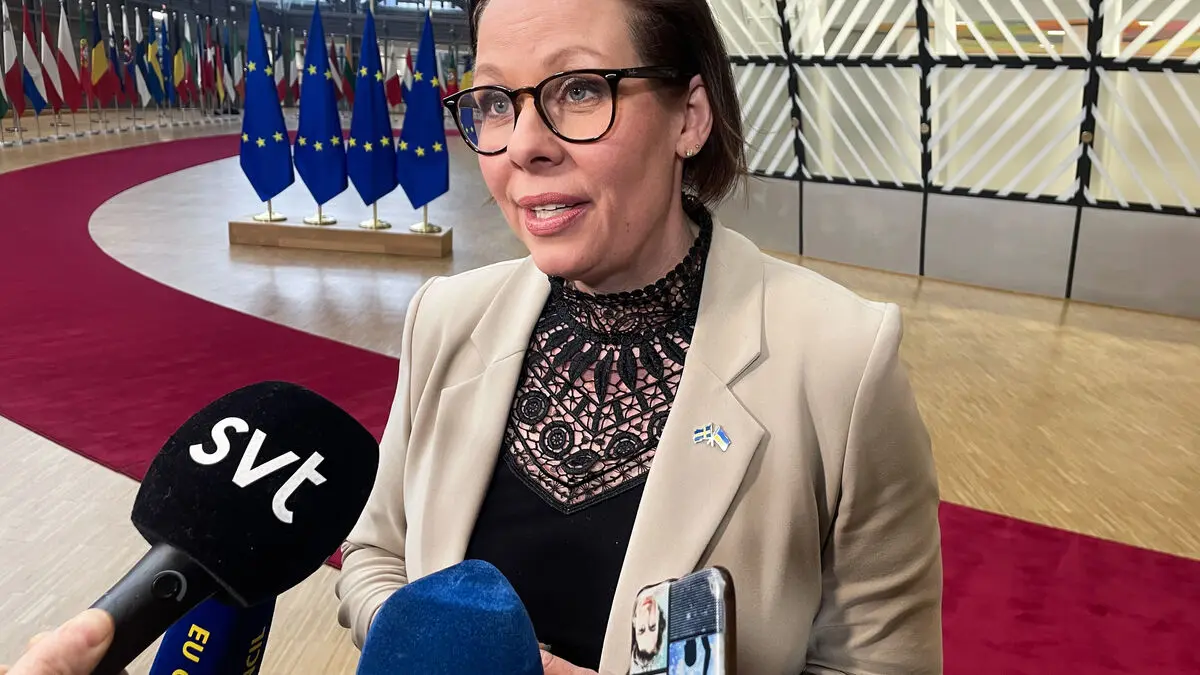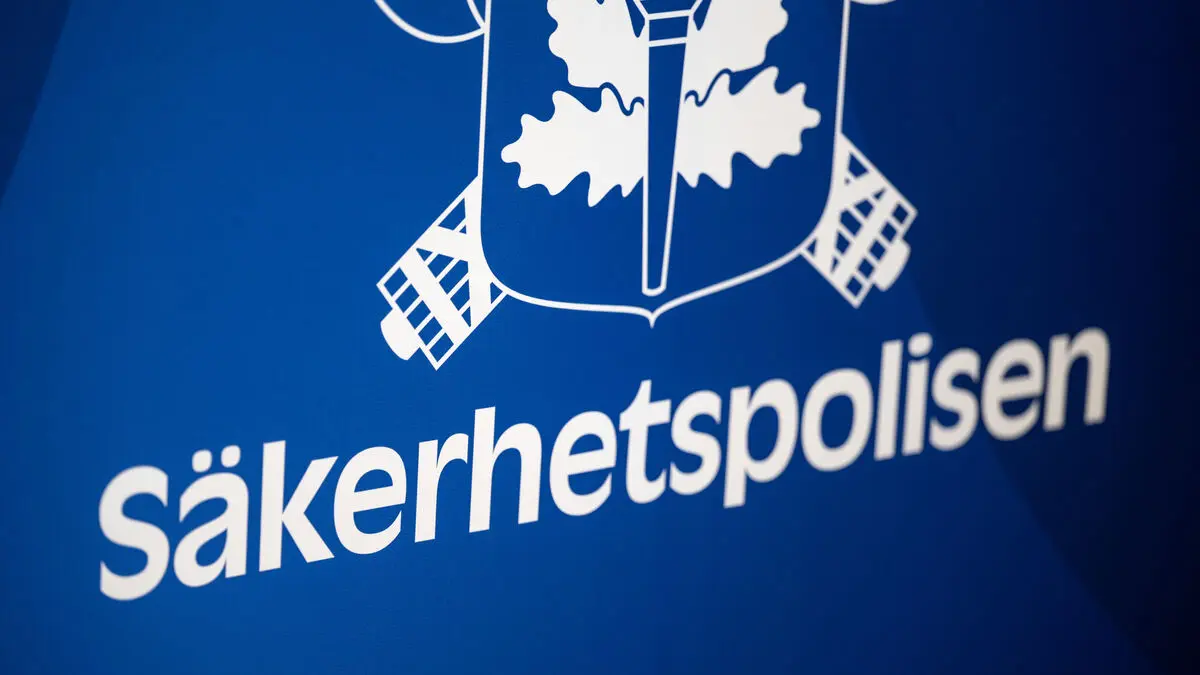In the rehabilitation clinic of Doctors Without Borders in Amman, war-injured children and adolescents limp through the corridors, one with worse injuries than the other.
Outside the hospital, a little boy, Amir al-Daour, sits and laughs with a soda in his hand. He has recently had a leg amputated.
He is on so much pain relief that I do not think he has understood what has happened, says his mother and sighs with relief that she will no longer have to choose between buying food or pain relief for her son.
The money was not enough for both, she explains.
Writing poems
On the fourth floor, Lana lies in her hospital bed and watches the news from Gaza.
My mother died. My brother died. I was hit here, she says and points to her left tibia.
When she is not watching TV, she writes poems about what she has experienced in Gaza. She takes out a plastic bag filled with colorful papers and reads a poem she wrote when she arrived in Amman at the beginning of August.
"Those who live in your soul, how can the heart forget, do not forget those who love you, so that you do not have to feel guilty when you have left."
In the hospital cafeteria, two mothers sit and talk about an impossible decision they were forced to make. Should they stay with their children who have not yet been injured, or leave Gaza with those who are in urgent need of care?
I tried to take all my children. It was impossible. I thought it was better to take two than to risk losing all, says Khulud Ishalid al-Madhun.
Hit in a rocket attack
It smells of Arabic coffee in the cafeteria. Here, there is everything that Gaza's children desire: candy, soda, ice cream, and several different dishes.
The most common question I get from my children who are left (in Gaza) is what food we get. I do not have the heart to say that we can eat both chicken and chocolate, so I say that the food does not taste particularly good.
Her daughter Sara, who is five years old, limps up to the table in the cafeteria with a cast on her leg and picks up beads from a pink bag.
She was injured in a rocket attack on the house we lived in. She got a fracture on her leg that made it shorter than the other.
The other woman in the cafeteria, Ghada al-Hams, is here with her son Amar, who was hit in an Israeli rocket attack when he tried to save a little girl.
"Save yourself"
The memory of the girl and how her head was torn from her body haunts him to this day. The first three months after the attack, he did not say a word.
My husband died in that attack, says Ghada, as tears begin to accumulate in the corner of her eye.
The last thing my husband said to Amar was: Save yourself, run from here, do not look back and not at your arm either.
Amar's arm looked like minced meat. He does not want to pull up his sleeve and show the injury that has now healed, but Ghada persuades him.
I try to explain that he has nothing to be ashamed of, that he should be proud of his arm, she says.
Has not stopped dreaming
Izuddin Rawashdeh works as a doctor at the clinic and is the first person the war-injured children meet when they arrive from Gaza.
In total, the clinic has received about 40 children since the outbreak of war, which is a drop in the ocean considering how many children are in need of urgent care.
A majority of those who come to the clinic are malnourished, and their injuries are often wrapped in the fabric they have been able to find, such as dirty clothes.
They hide food and water bottles at first. They do not trust that there will be more tomorrow. It is heartbreaking to see that they no longer have any dreams, except for the most basic necessities.
But Lana, who sits in her hospital bed on the fourth floor, has not stopped dreaming.
Her father persuaded the doctor in Gaza, who wanted to amputate, to do everything to save Lana's injured and severely infected leg.
After the next operation here in Amman, she expects to be able to start her rehabilitation and start walking again.
I want to be a teacher in Arabic, but not in Gaza, there is nothing left there, she says.
Since October 7, 2023, 7,841 patients, including 5,405 children, have managed to leave Gaza through a medical evacuation order. The majority have been evacuated and received care in countries in the surrounding area, where Egypt is the largest recipient country.
European countries such as Norway, Spain, Germany, France, and Italy have also received patients. The EU Commission has asked Sweden for help, but the government has so far said no.
According to the WHO, about 15,800 people, including 3,800 children, are still waiting for a medical evacuation order for care that is not available in Gaza.
At least 19,000 children have died and 42,000 have been injured in the war.
According to the UN, malnutrition in Gaza has reached catastrophic levels, where all children under the age of five, more than 320,000, are at risk of becoming acutely malnourished. In July, 13,644 children suffered from acute malnutrition.
Source: Doctors Without Borders, WHO, Unicef






